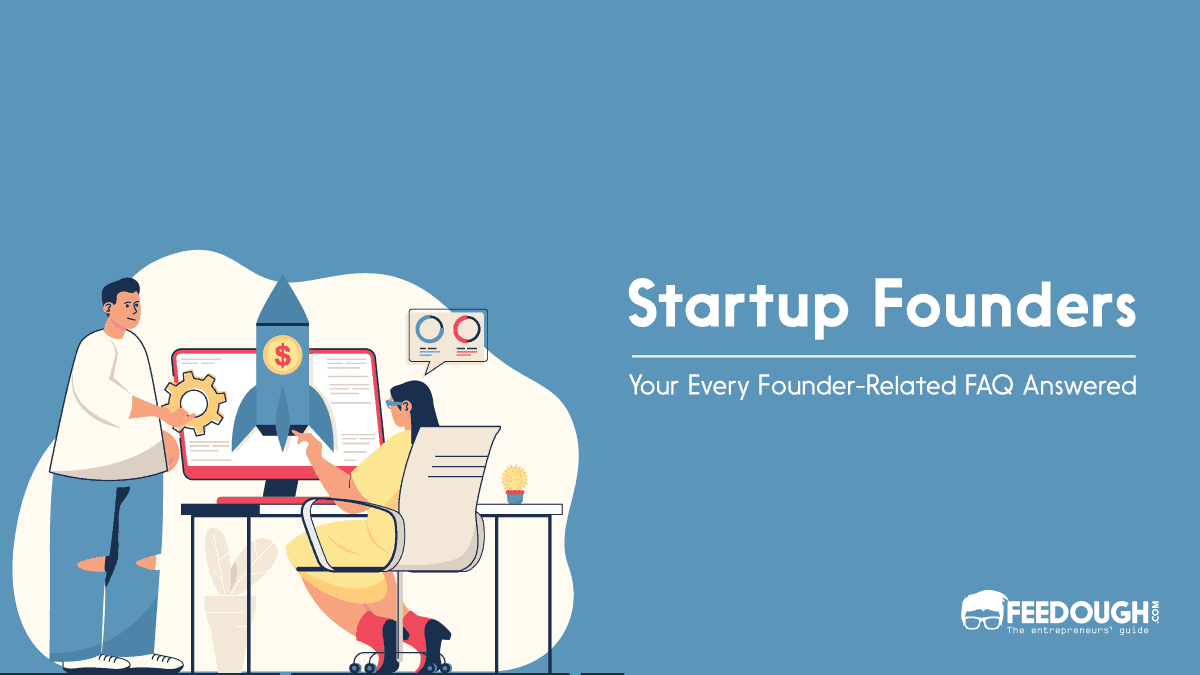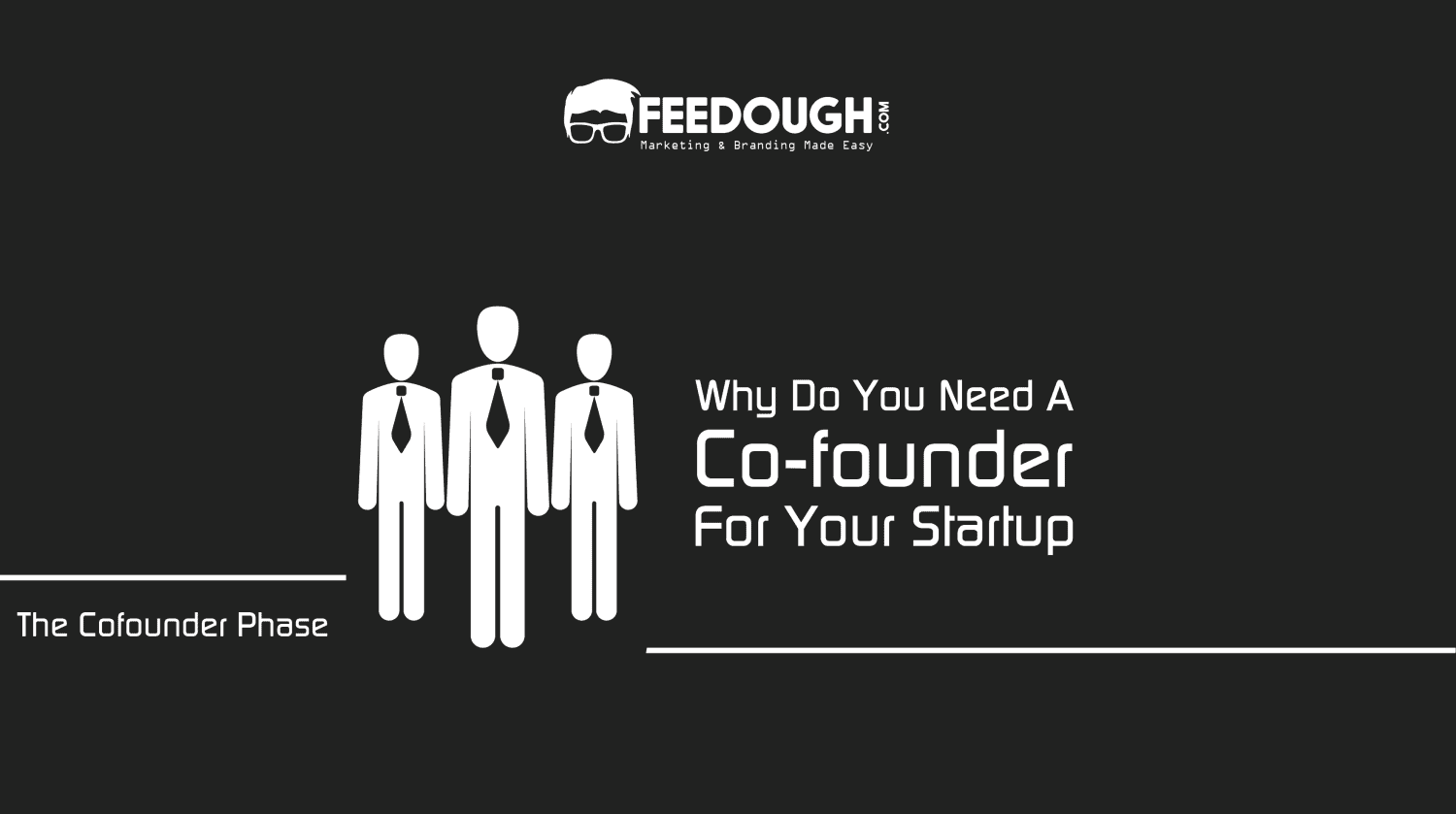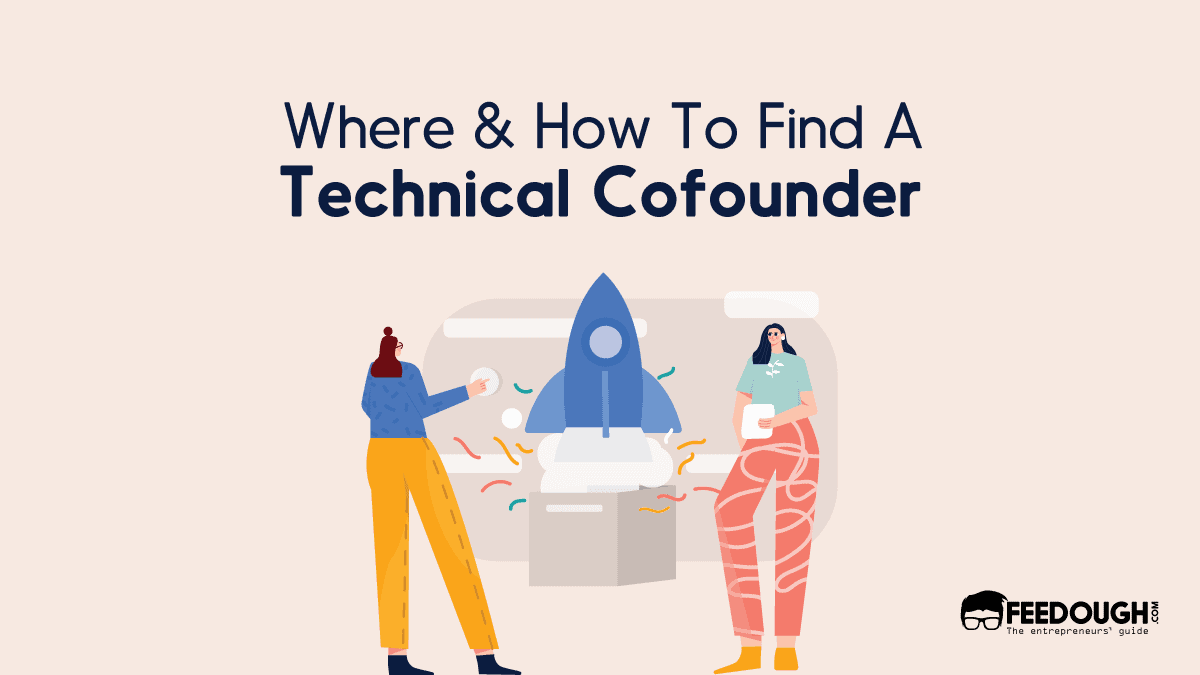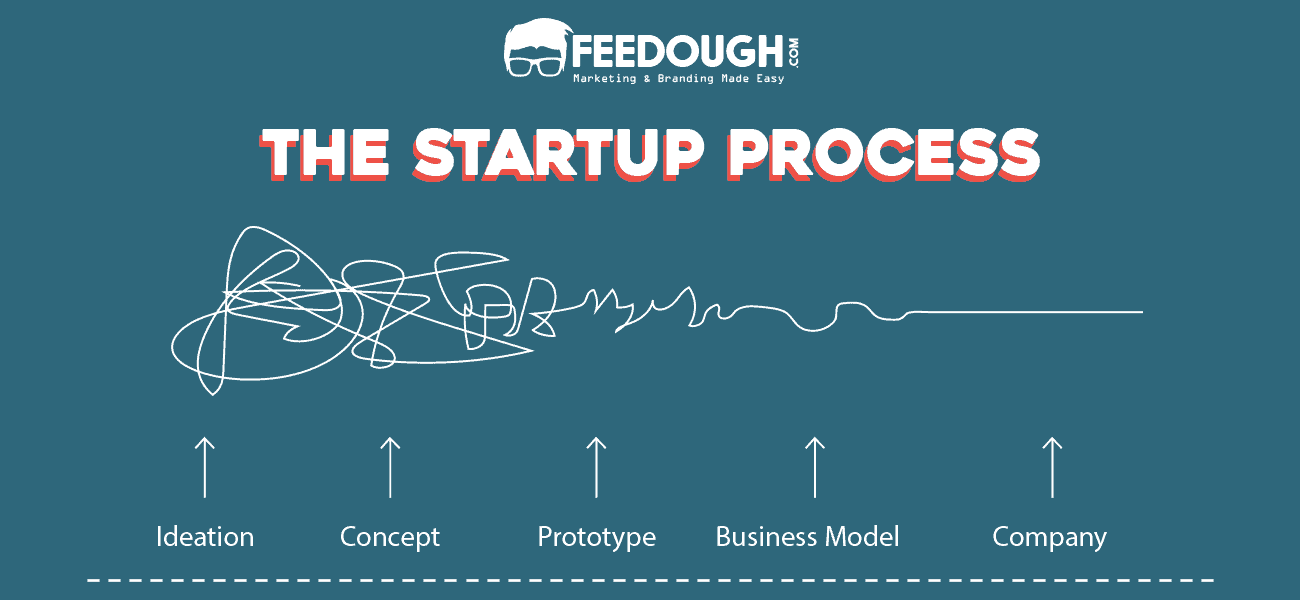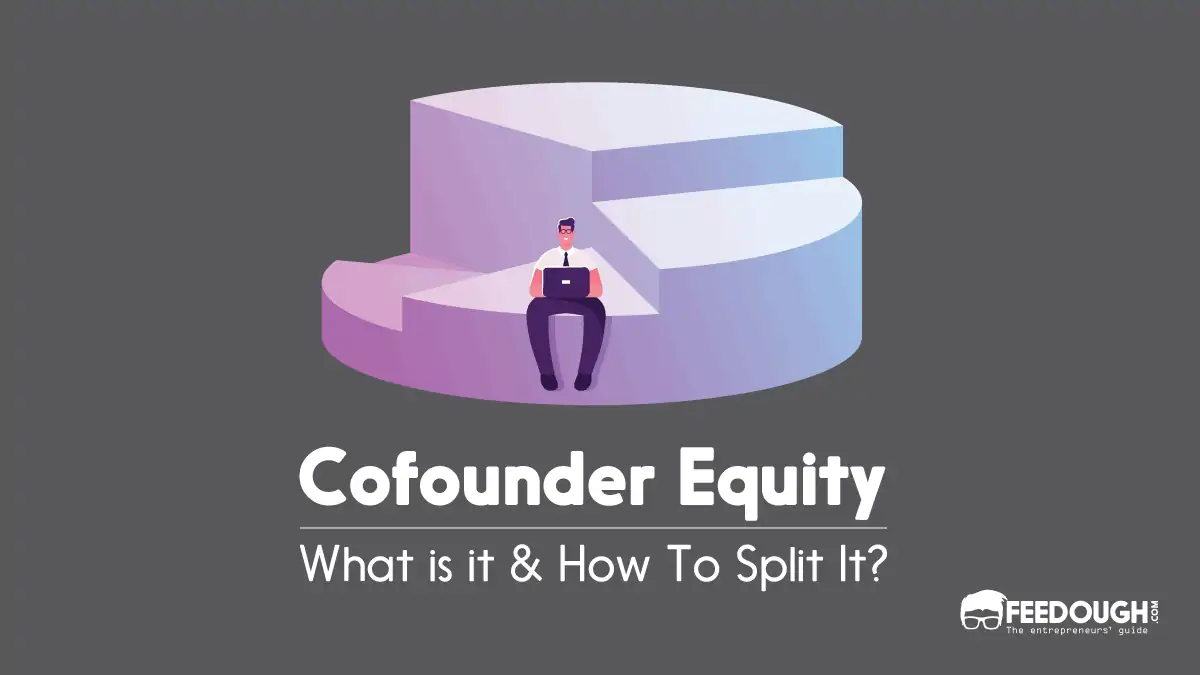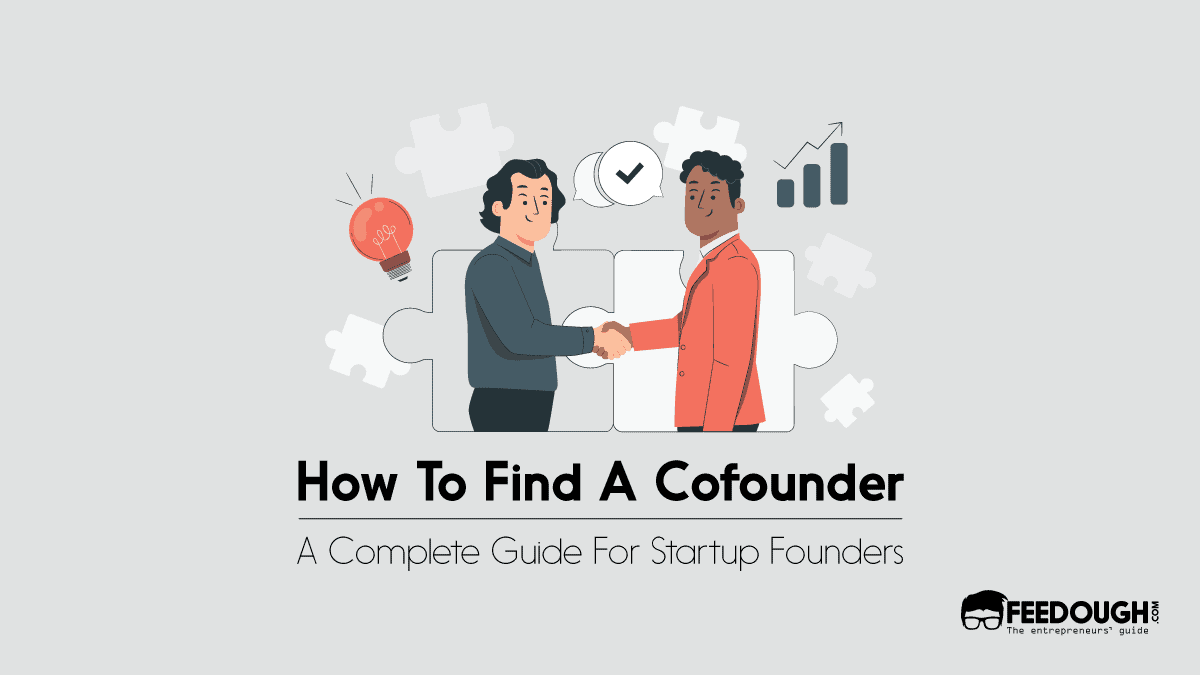It all starts with a person with an idea. Let’s believe this person is you. You have an idea for a startup. You want to turn this idea into a reality or might have already started working on it. But you have questions – about being a startup founder and finding a perfect cofounder for your venture.
This guide seeks to answer some of the most frequently asked questions when it comes to startup founders and cofounders.
But before we start –
What Is A Startup Founder?
A startup founder is an entrepreneur who starts a company from scratch with the goal of turning it into a profitable enterprise. They take on the risks and responsibilities of building the business, including financial, legal, and personnel risks.
What Is A Startup Cofounder?
A startup cofounder is a business founding partner who helps launch and grow a new company. Cofounders typically share an entrepreneurial vision and work together from the early days (if not the start) to turn the company into a success. They may have different areas of expertise, but they should complement each other’s skillsets.
Now, there’s a clear distinction between a founder and a cofounder. A founder is the original creator of the company (the person who came up with the idea), while a cofounder is someone who comes on board to help grow the business.
Is Startup Founder The CEO?
The startup founder is not a job position like CEO, CTO, etc. The title of a startup founder is given to the person who had the original idea for the company and is responsible for its overall vision and strategy. They may or may not be the CEO.
In a usual scenario, the startup founder is the CEO in the company’s early days. But as the business grows, they may hire a professional CEO to take over the reins and focus on other aspects of the business.
What’s The Difference Between A Startup Founder And An Entrepreneur?
All startup founders are entrepreneurs, but not all entrepreneurs are startup founders.
An entrepreneur is someone who starts and runs a business intending to make a profit. They take on financial risks in the hope of earning a return on investment.
A startup founder is an entrepreneur who starts a startup from scratch to turn it into a profitable enterprise with a hockey stick growth chart. This startup is marked by disruptive innovation and is developed to solve a problem under extreme uncertainty.
In simple terms, a startup founder is an entrepreneur who starts a more risky business by disrupting an entire market or creating a new market.
What Does A Startup Founder Do?
The primary responsibility of a startup founder is to get the ball rolling. This includes coming up with the initial idea, putting together a team, building the product, and raising capital. Once the business is up and running, the founder’s role will evolve depending on the company’s needs and their skillset.
For example, a founder who’s great at marketing may focus on growth and scaling and handle the marketing department by taking the title of CMO. In contrast, a technical founder may focus on product development and become the CTO.
How Do I Find A Cofounder For My Startup?
There’s no simple answer to this question. It depends on your business, your idea, and your network.
The best way to find a cofounder is to start with your inner circle – friends, family, colleagues, etc. These people know you and your work ethic, and you can trust them.
If you can’t find a cofounder within your inner circle, the next best option is to look for someone with complementary skillsets. For example, if you’re a technical founder, you might want to find a cofounder with sales and marketing experience.
Once you’ve identified a potential cofounder, the best way to assess compatibility is to work together on a small project. This will allow you to see how well you work together and whether you share the same vision for the company.
If you’re still having trouble finding a cofounder, there are online platforms and events (like startup weekends) where you can meet other entrepreneurs and pitch your idea.
What Are The Benefits Of Having A Cofounder?
There are many benefits of having a cofounder, including:
- More brainpower to solve problems and make better decisions
- Increased chances of success (studies have shown that startups with cofounders are more likely to succeed than those without)
- Shared workload and responsibilities
- Different perspectives and skillsets
- A built-in support system
How Many Cofounders Should I Have?
There’s no one answer to this question. It depends on your business, your idea, and your personal preferences.
Some startups have one cofounder, while others have two or more. There are even companies with 10+ cofounders!
The important thing is to make sure that you have the right mix of skills and personalities and that everyone is on the same page in terms of the company’s vision.
How To Make Sure Cofounder Stays Committed?
The best way to make sure your cofounder stays committed is to clearly understand each other’s roles and responsibilities from the beginning. This includes defining everyone’s equity stake, setting expectations for work hours and vacations, and creating a plan for what happens if one person wants to leave the company.
It is also important to keep everyone’s shares vested so that no one can simply walk away from the company.
Founder vesting is a common practice in the startup world, and it typically works like this:
- The founder(s) each get a certain number of shares when the company is founded.
- These shares vest over time (usually four years), meaning the founder(s) earn them gradually as they stick around and contribute to the company.
- If a founder leaves the company before their shares are fully vested, they forfeit the unvested shares.
- This system aligns everyone’s interests and ensures that everyone is invested in the long-term success of the company.
What Happens If A Cofounder Leaves The Company?
If a cofounder leaves the company without his shares fully vested, he forfeits the unvested shares.
The remaining cofounders can then decide what to do with the forfeited shares. One option is to give them to another employee who has been with the company for a long time and has contributed greatly to its success.
Another option is to keep the shares within the founding team so that the team still has a majority stake in the company.
The important thing is to have a plan in place so that everyone knows what will happen if a cofounder leaves. This way, there are no surprises, and everyone can continue working together towards the company’s goals.
Another scenario is what if the company didn’t vest the cofounder’s shares? In this case, the cofounder would own their shares outright and could simply walk away from the company at any time.
This is why it’s so important to have a vesting schedule in place. It ensures that everyone is committed to the company’s long-term success and gives everyone a vested interest in its success.
What Contracts Should Founders And Cofounders Sign Before Starting Up?
Before starting up, founders and cofounders need to sign several contracts, including:
- The Founders’ Agreement: This agreement sets forth the roles and responsibilities of each founder and the company’s equity split.
- The Employment Agreement: This agreement sets forth the terms of employment for each founder, including salary, benefits, and equity.
- The Intellectual Property Assignment Agreement: This agreement assigns all intellectual property created by the founders to the company. It helps to protect the company’s intellectual property if a founder leaves the company.
- The Confidentiality Agreement: This agreement requires each founder to keep all confidential information about the company, such as its business plan and financials, private.
- The Non-Compete Agreement: This agreement prevents the founders from competing with the company for some time after they leave.
By signing these agreements, the founders are protecting the company and ensuring that everyone is on the same page in terms of the company’s goals and objectives.
How To Split Equity Among Cofounders?
The most important thing to remember when splitting equity among founders is that it should be done in a way that aligns everyone’s interests.
One common way to do this is to give each founder an equal number of shares. This ensures that everyone has an equal say in the company’s decision-making process.
Another way to split equity is to give each founder a percentage of the company based on their contribution to the business. For example, if one founder comes up with the idea for the business and another founder builds the website, they might each receive a different percentage of the company.
However, understand that uneven equity splits can often lead to conflict among the founders and it is hard to assess each founder’s contribution to the business. Therefore, it is often best to give each cofounder an equal number of shares as:
- A startup isn’t built in a day: It takes time, effort, and dedication from everyone involved.
- Different skills are needed at different stages: Not everyone needs to be involved in every aspect of the business.
- The equity split should align everyone’s interests: It should incentivise everyone to work towards the company’s success.
- Cofounders are not employees: They are your partners and should be treated as such.
How Much Salary Does A Startup Founder Get?
It depends.
In some cases, the founder(s) may not take a salary at all in the early stages of the company. This is because the company is trying to save money and grow as quickly as possible.
In other cases, the founder(s) may take a small salary, but it depends on:
- The state of cash flows: If the company is doing well and has a lot of cash, then the founders may take a higher salary. If the company is struggling to make ends meet, then the founders may take a lower salary.
- The stage of the company: In the early stages of a startup, the founder(s) may take a lower salary so that they can reinvest the money back into the company. As the company grows and becomes more successful, the founder(s) may take a higher salary.
- The equity stake: If the founders own a large percentage of the company, they may take a lower salary to compensate for their equity stake.
- The industry standards: In some industries, it is more common for the founder(s) to take a salary than in others.
Ultimately, it depends on the situation and what is best for the company.
Can You Fire A Startup Cofounder?
There are times when it may be necessary to fire a cofounder, such as if they are not contributing to the company or if they are causing problems.
However, it is important to consider the implications of firing a cofounder before taking any action.
For example, if the cofounder owns a large percentage of the company, then firing would be of no use as the person will just cease being an employee and still own their shares.
It is also important to consider the impact that firing a cofounder could have on morale and motivation. If the remaining founders feel like they can’t trust each other, it could be very difficult to move forward.
However, it’s crucial to the company’s success to fire a cofounder in some cases. To save yourself from such a scenario, make sure to have a good vesting schedule in place to get enough time to assess a person’s contribution before they fully vest.
But if they already own a good percentage of shares, then you might have only one choice – buy them out. You need to negotiate a fair price to both parties and make sure that the terms of the buyout are clearly laid out in a contract.
How To Avoid Conflict With Cofounders?
Conflicts between cofounders are inevitable. However, there are some things that you can do to avoid or minimise conflict.
- Communicate openly and frequently.
- Be clear about roles and responsibilities from the start. Include them in the founding documents.
- Keep an open mind and be willing to compromise.
- Be honest with each other.
- Make sure that you are on the same page in terms of the company’s goals and objectives.
- Put everything in writing. This includes equity split, roles and responsibilities, decision-making process, etc.
- Have regular check-ins and review sessions.
While these tips may not completely prevent conflict, they can help to minimise it.
Go On, Tell Us What You Think!
Did we miss something? Come on! Tell us what you think about our article on startup founders and cofounders in the comments section.
A startup consultant, digital marketer, traveller, and philomath. Aashish has worked with over 20 startups and successfully helped them ideate, raise money, and succeed. When not working, he can be found hiking, camping, and stargazing.
